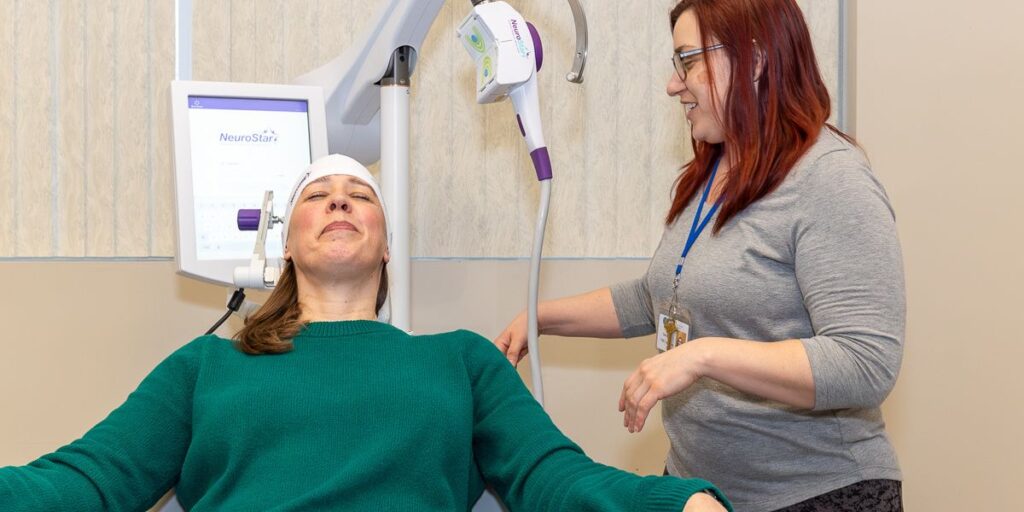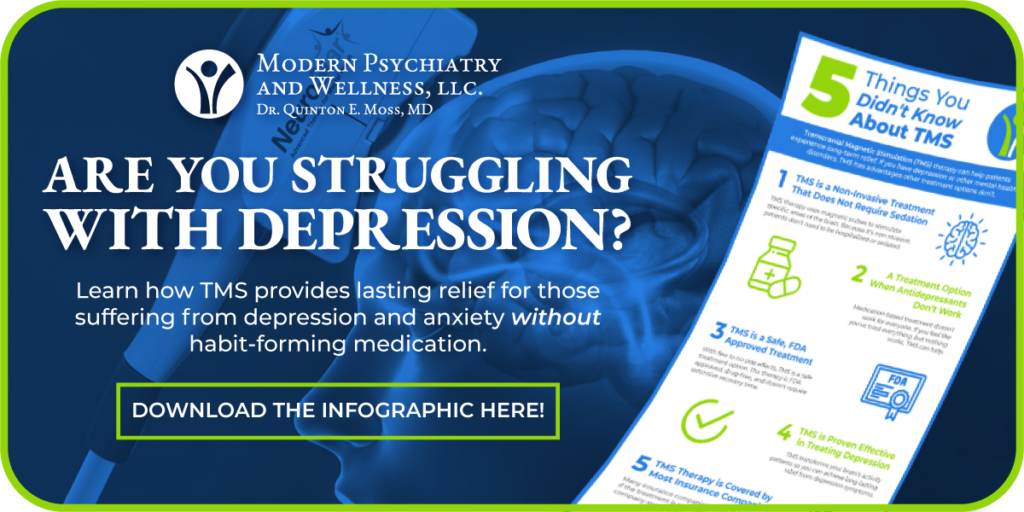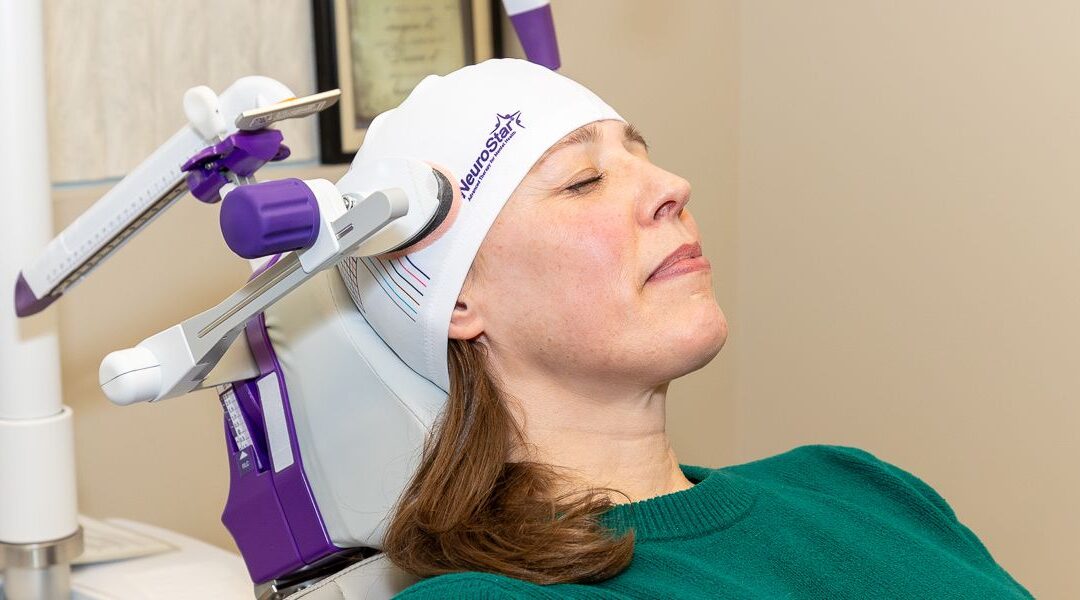Transcranial Magnetic Stimulation (TMS) therapy has attracted attention as a potential breakthrough in treating depression and anxiety. It offers a non-invasive alternative to conventional methods by using magnetic fields to stimulate specific regions of the brain associated with mood regulation. TMS shows promise in providing relief for patients with depression and anxiety, but we need to consider both the pros and cons of TMS therapy to fully understand its potential impact.
Learn to Overcome Your Worries and Anxiety with our eBook
What is TMS?
Before delving into the pros and cons of TMS, let’s briefly understand what it is. Transcranial Magnetic Stimulation (TMS) is a non-invasive procedure that uses magnetic fields to stimulate nerve cells in specific areas of the brain. It involves placing a magnetic coil against the scalp, which generates electrical currents to stimulate targeted brain regions. By modulating the neural activity in these areas, TMS aims to alleviate symptoms associated with mental health disorders.
The Pros and Cons of TMS
Pros of TMS Therapy
FDA Approved
One of the most significant advantages of TMS therapy is its approval by the U.S. Food and Drug Administration (FDA). The therapy has undergone a rigorous testing process to meet the FDA’s safety and efficacy standards. FDA approval adds credibility and reassurance regarding the reliability of the treatment.
Non-Invasive
TMS therapy is particularly notable for its non-invasive approach, setting it apart from traditional treatments like electroconvulsive therapy (ECT). Unlike ECT, which necessitates anesthesia and carries risks associated with invasive procedures, TMS allows patients to undergo treatment without these concerns.
No Medication Required
Another noteworthy advantage of TMS therapy is that it doesn’t involve the use of medication. For patients who prefer to avoid or have not responded well to substance-based treatments, TMS provides a medication-free alternative.
Limited Side Effects
TMS therapy is generally associated with fewer and milder side effects compared to conventional treatments. Common side effects, such as mild scalp discomfort or headaches during or after the session, are usually temporary and tend to diminish over time.
Targeted Treatments
One of the notable advantages of TMS is its ability to precisely target specific brain regions associated with mood disorders. This minimizes the impact on surrounding brain tissue, reducing the likelihood of unwanted side effects often seen with broader interventions.
Potential for Lasting Effects
TMS therapy stands out for its potential to deliver lasting relief. Following treatment, individuals often experience sustained improvements beyond the active therapy phase. According to Harvard Medical School, approximately 50-60% of those previously unresponsive to medications find meaningful relief with TMS, with about one-third achieving full remission. While these effects aren’t permanent, the average response duration extends beyond a year, making TMS an attractive option for long-term mental health benefits.

Cons of TMS Therapy
Treatment Duration
TMS therapy typically requires multiple sessions over several weeks to achieve optimal results. Each session lasts around 20-30 minutes, and the full course of treatment can take 4-5 weeks. This time commitment can be challenging for patients with other responsibilities or limited access to treatment facilities.
Varying Results
While TMS has demonstrated promising results for many individuals, its effectiveness can vary. While some may experience significant improvements in their symptoms, others may see little to no benefit. It is important to note that finding the optimal treatment plan often involves careful monitoring and adjustments to ensure the best possible outcome for each patient.
Potential for Discomfort
Though uncommon, some individuals may experience discomfort during or after sessions. This can include scalp discomfort, headaches, or muscle contractions. However, these side effects are typically temporary and tend to subside over time.
Limited Availability
Access to TMS therapy may be limited in certain regions or healthcare systems. Not all hospitals or clinics offer TMS, and availability may vary depending on geographical location and insurance coverage. This can make it challenging for some individuals to access this treatment option.
Modern Psych TMS Treatment for You
Overall, TMS therapy offers a non-invasive and medication-free option for individuals seeking relief from depression and anxiety. It is important to note that while TMS therapy offers a non-invasive and medication-free option for individuals seeking relief from depression and anxiety, it is crucial to have a conversation with a healthcare professional before making any decisions. By working closely with a healthcare professional, you can make an informed decision and create a comprehensive treatment plan that best addresses your needs.
If you think TMS therapy may be suitable for you, please get in touch with us at Modern Psych. Modern Psych offers the NeuroStar TMS treatment for those who have not responded to conventional treatments. We provide an alternative for achieving relief from mental health challenges. If you think TMS is the right treatment for you, get in touch with us today!


